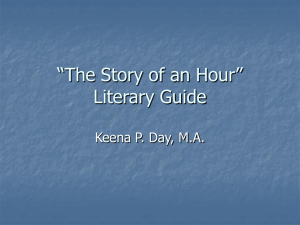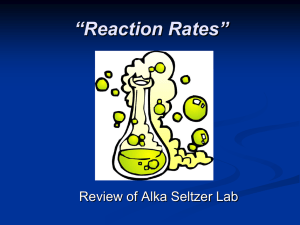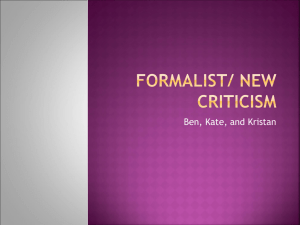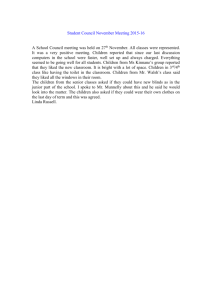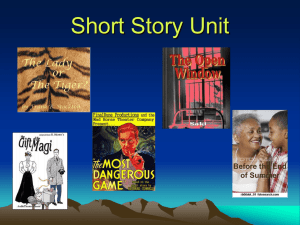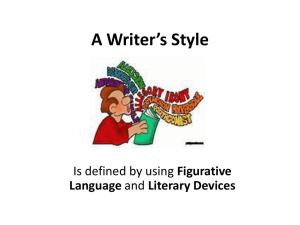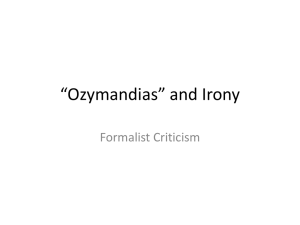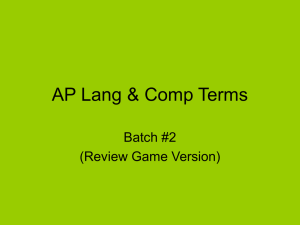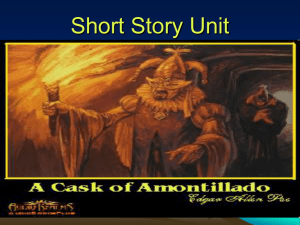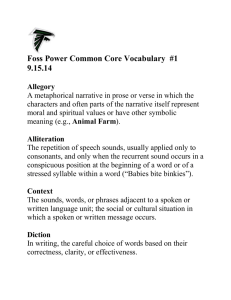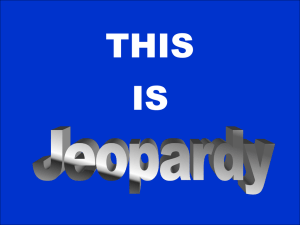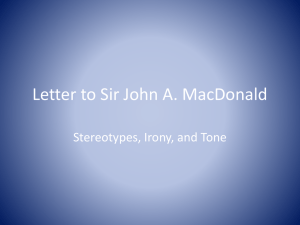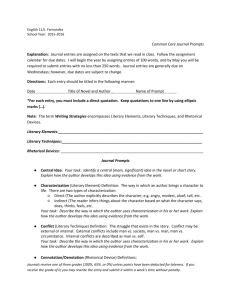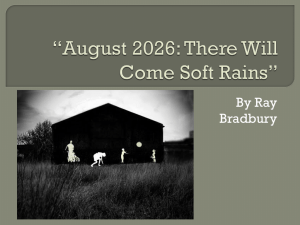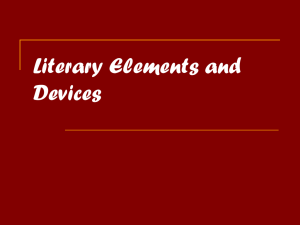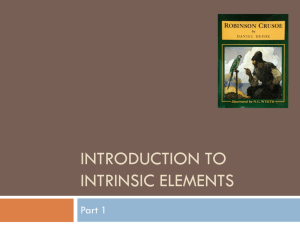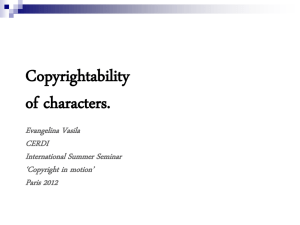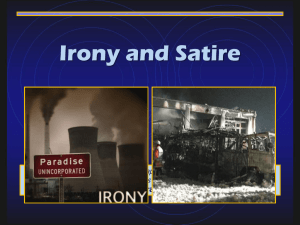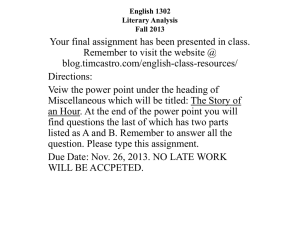literary devices adventures of huckleberry finn
advertisement
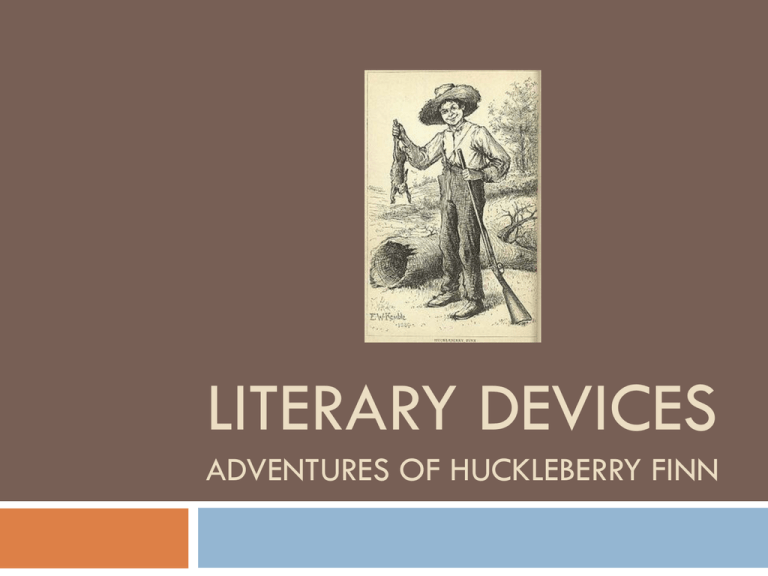
LITERARY DEVICES ADVENTURES OF HUCKLEBERRY FINN BILDUNGSROMAN A novel which chronicles the physical, emotional, and psychological development of a young protagonist through to adulthood Examples: Adventures of Huckleberry Finn, Twain (debatable) David Copperfield, Charles Dickens The Kite Runner, Hosseini A Tree Grows in Brooklyn, Smith COLLOQUIALISM A conversational expression or spoken, informal level of speech Example from modern-day language: "I think country gets dumped on across the board by the Grammys." (Toby Keith) She was recently dumped by her fiance. Example from Huck Finn: “You don’t know about me without you have read a book by the name of The Adventures of Tom Sawyer, but that ain’t no matter.” DIALECT The particular variety of language spoken in a definite place by a distinct group of people Dialects vary in pronunciation, vocabulary, use of colloquialisms, and sentence structure Dialects are used to establish setting and provide local color Examples: South: "Y'all" North: "You guys" South: "Fixin' to" North: "About to" South: "Howdy" North: "Hey" South: "Twixt" North: "Between“ http://robertspage.com/dialects.html] EPISODIC Narrative fiction which is structured around a series of loosely linked vignettes, each of which contains a conflict, climax, and conclusion IRONY A contrast or tension between what is expected and what occurs Situational Irony – When a character or reader expects one thing to happen, but the opposite occurs Verbal Irony – When a character means the opposite of what is said (i.e. sarcasm) ML: Kids, we have a pop quiz today! KIDS: Oh, great. Dramatic Irony – When there is a contrast between what a character knows and what a reader knows LOCAL COLOR The use of characters and details unique to a particular geographic area. Created by the use of customs, clothing, manners, attitudes, scenery, or landscape Local color stories were extremely popular after the Civil War Examples: Mark Twain – Mississippi River, Bret Harte – The Wild West MOOD Atmosphere; the feeling created in the reader by a literary work Not to be confused with tone, which reflects the feelings of the writer CREEPY: http://www.youtube.com/watch?v=fBGGAjMg9vw NAÏVE NARRATOR A first-person narrator who, though not always, is often young and possesses traits of innocence, openness, candor, and a lack of sophistication PICARESQUE A satirical, episodic novel that presents the life story of: A triumphant rascal Of low social status Making a living through his wits POINT OF VIEW The perspective or vantage point from which a story is told: First Person: I saw her from across the hallway and my heart stopped. I liked that girl. Second Person: You saw her from across the hallway and your heart stopped. You liked that girl. Third Person Limited: He saw her from across the hallway and his heart stopped. He liked that girl. She smiled at him. What could that beautiful smile mean? Did she like him, too? Third Person Omniscient: He saw her from across the hallway and his heart stopped. He liked that girl. She saw him and smiled. She liked him, too. REALISM An accurate and detailed portrayal of real life The literary movement of Realism developed in the latter half of the 19th century Based on careful observations about contemporary life Usually portrays something unapologetically, “warts and all” EMBRACES: Objectivity and honesty REJECTS: Sentimentality and idealism of the previous Romantic movement http://player.discoveryeducation.com/index.cfm?guidAssetId= 58DDD094-002B-4C17-A2AF18E2595785B2&blnFromSearch=1&productcode=US ROMANTICISM A literary and artistic movement of the first half of the nineteenth century which arose in reaction against eighteenth century Rationalism Values Imagination Emotion over reason Individuality The exotic Nature American Romantics: Poe, Thoreau, Emerson, Dickinson, Hawthorne http://player.discoveryeducation.com/index.cfm?guidAssetId=FFF65 663-256C-40C3-961A283E35A8BF5A&blnFromSearch=1&productcode=US SATIRE A literary technique in which ideas, customs, behaviors, or institutions are ridiculed for the purpose of improving society Satire uses: Irony Sarcasm Exaggeration Caricature TONE The attitude a writer takes toward a subject. The language and details used help to create tone. Examples: Playful Serious Bitter Angry Detached Literary Devices in Modern Reality http://www.nbc.com/saturday-nightlive/video/the-californians/1396627/
